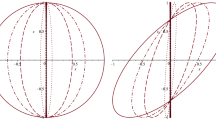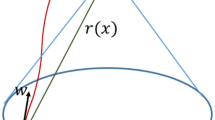Abstract
ON Maxwell's theory, lines of electric force which are not anchored to charged particles travel at right angles to themselves with the velocity of light. A circular line of force travelling at right angles to its plane would fulfil this condition and would travel unchanged without loss of energy; it would thus possess one of the properties of the photon. I suggested some tune ago that the photon is a ring of force of this kind. A single ring, however, would not account for interference; to possess this property it would have to be accompanied by a train of Maxwellian waves. If these came from the atom emitting the light, they would diminish rapidly in intensity as the distance from the source increased, so that the light from a distant star would differ from that of the same wave-length produced in the laboratory. Again, on this view we have to explain why the path of the photon is guided by these waves. I suggested that this might be done by the momentum which these waves possess; that it was in fact an effect analogous to those due to the pressure of light.
This is a preview of subscription content, access via your institution
Access options
Subscribe to this journal
Receive 51 print issues and online access
$199.00 per year
only $3.90 per issue
Buy this article
- Purchase on Springer Link
- Instant access to full article PDF
Prices may be subject to local taxes which are calculated during checkout
Similar content being viewed by others
Author information
Authors and Affiliations
Rights and permissions
About this article
Cite this article
THOMSON, J. The Nature of Light. Nature 137, 232–233 (1936). https://doi.org/10.1038/137232a0
Published:
Issue Date:
DOI: https://doi.org/10.1038/137232a0
Comments
By submitting a comment you agree to abide by our Terms and Community Guidelines. If you find something abusive or that does not comply with our terms or guidelines please flag it as inappropriate.



